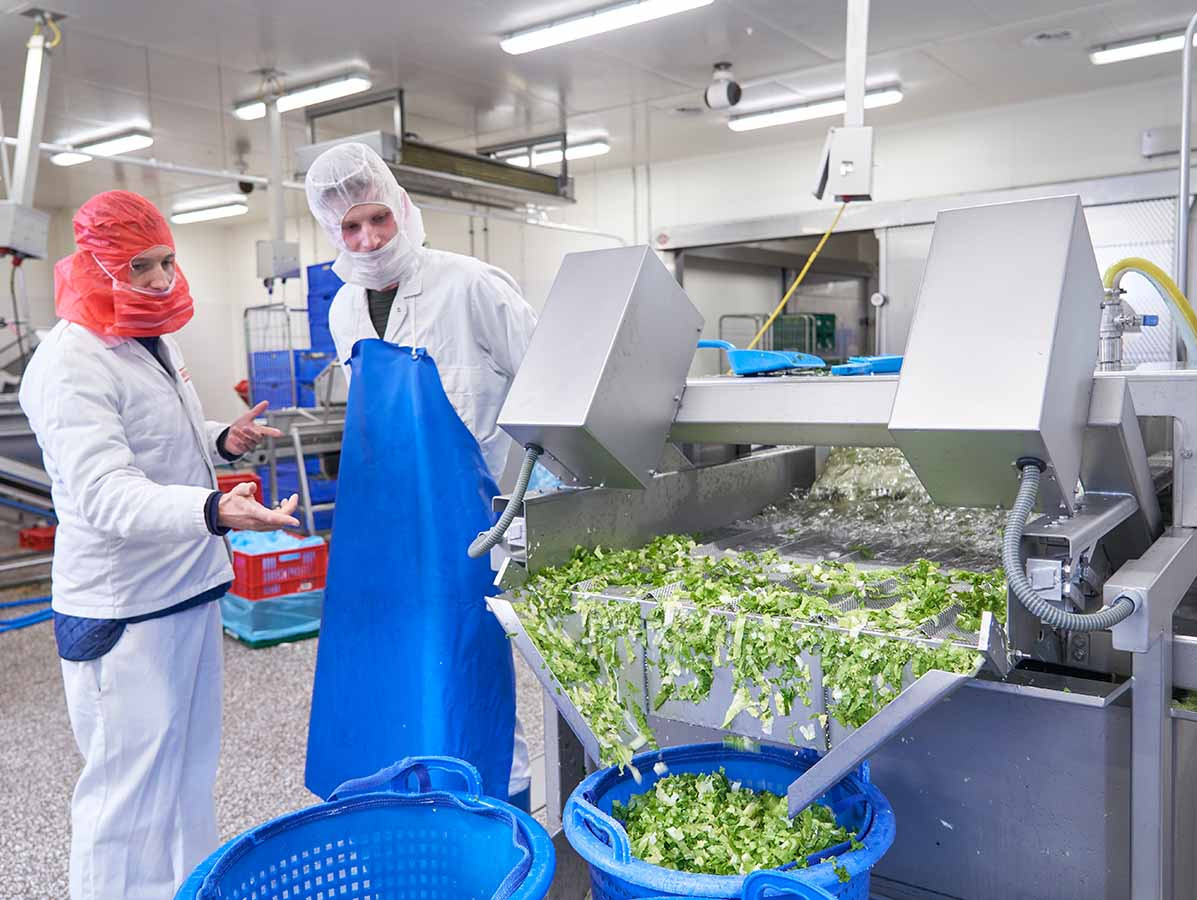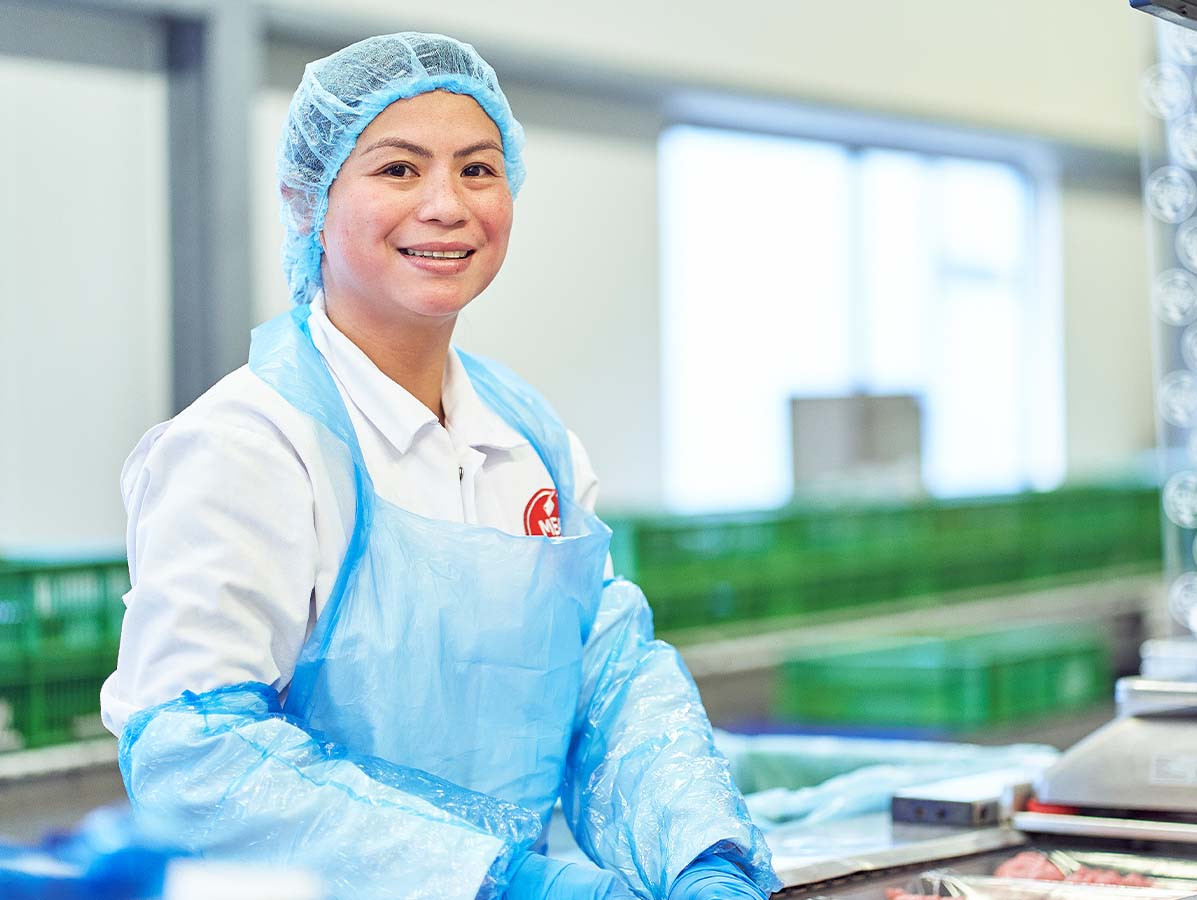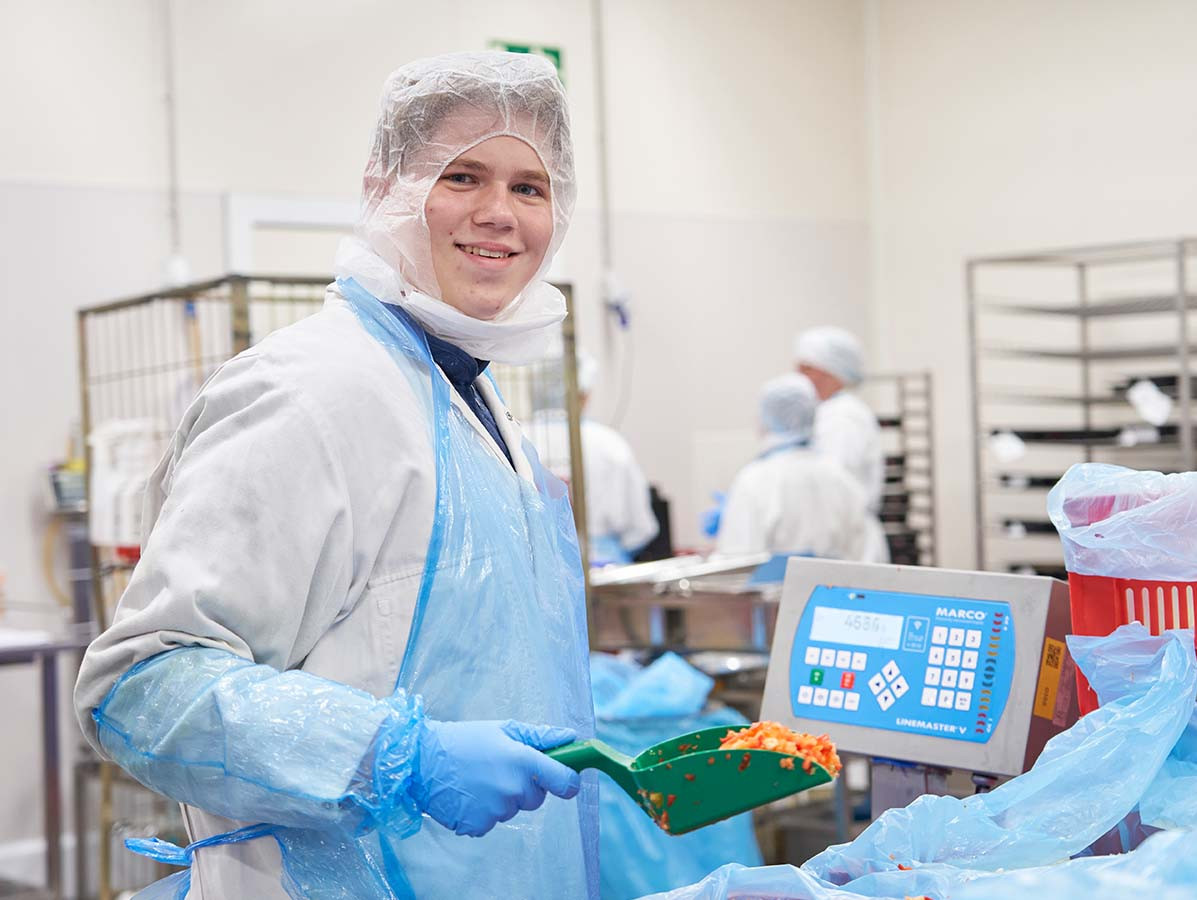
Well-trained staff are crucial for any company. Training programs offer businesses the opportunity to retain employees and increase their enthusiasm for their work, which is reflected in the quality they deliver.
SVO vakopleiding food recently revamped its part-time vocational training programs for the fresh food industry. "It's very important to us to provide courses that closely meet the needs of the industry," says Petra Goverts, Education Manager at SVO. "Last year, we therefore held discussions with a sounding board group, which included representatives from companies in the fresh food industry. We received two key pieces of feedback. One: the industry needs shorter training programs. Two: the compulsory general subjects in our vocational programs, such as Dutch and math, are challenging. Many newcomers work in the industry, and their Dutch is not always sufficient. These general subjects are a barrier for them to start a vocational training program."
Based on this feedback, SVO thoroughly reviewed its courses. Until this academic year, SVO had multiple industry-related courses that partially overlapped. Jacqueline van Duinen, an educationalist at SVO, explains, "We therefore developed a new training framework. We merged our level 2 vocational courses into one new course: Employee in the fresh food industry. Students can choose subjects related to being a production worker, operator, or logistics employee within this general course. Key areas such as workplace safety and product knowledge are emphasized, with additional focus on 'communication on the shop floor'. This way, they can tailor their education to their job, allowing them to immediately apply the knowledge and skills they acquire at their company."

A significant change is the method of examination during the courses. Previously, students took digital theory exams. From the upcoming academic year, these exams will be replaced by criterion-referenced interviews (CRIs). "This examination method suits our students much better," says Nico Putter, a teacher at SVO. "During the CRIs, they explain how they applied the theory they learned on the shop floor, demonstrating their understanding of the material. They no longer need to sit behind a laptop and type an answer. This is particularly beneficial for students who find it difficult to express themselves in written Dutch."
SVO is also addressing the barrier presented by general subjects and the need for shorter training tracks. "We have developed various tracks for vocational certificates at levels 2, 3, and 4," says Petra. "We divided our regular vocational courses into distinct sections that are important for working in the fresh food industry. Students in these tracks do not need to take general subjects. The training programs are shorter, and upon successful completion, students receive a legally recognized vocational certificate. Because we don't have to teach Dutch, we can potentially offer tracks in other languages in the future." SVO has submitted a proposal to the Cooperation Organization for Vocational Education, Training and the Labour Market (SBB) and is waiting for approval. Only then can SVO offer the shortened vocational courses.

"These changes make our courses even more accessible," says Nico. "Including for employees who speak less Dutch. That's a good thing because training employees is very important. If you want to drive a car, you need a driver's license. But if you're going to work with food, you can start right away. That's strange because food safety is extremely important. Training also gives companies the chance to bind employees to them and make them even more enthusiastic about their work. For employees, training is beneficial because it allows them to advance within their company. Our students are very motivated to develop further. Rightly so, because the fresh food industry is a wonderful sector. I have worked in it myself, and every time I visit a company, I think: I still feel at home here. I enjoy passing that feeling on to my students."
Practical and industry-focused
For employees in the fresh food industry, the vocational educator SVO offers multiple part-time vocational courses (BBL). These are practical courses where employees go to school one day a week and work the rest of the time. There are vocational courses at four levels: Assistant in Hospitality, Food, or Food Industry (level 1), Employee in the fresh food industry (level 2), Allround employee in the fresh food industry (level 3), Production leader in the fresh food industry (level 4), and Quality employee (level 4).
In addition to vocational courses, SVO also offers industry-specific training, for example, in animal welfare, food safety, leadership, and cutting skills. Various innovative learning methods are used in different trainings, such as interactive e-learning and virtual reality. Developing custom training and in-company trajectories is also possible.
Source: Vakblad Voedingsindustrie 2024